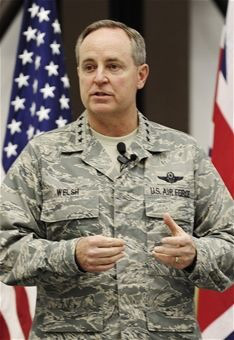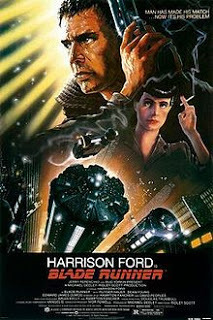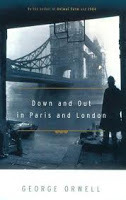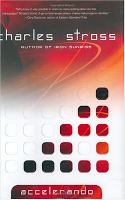Mark D. Jacobsen's Blog, page 12
November 3, 2012
The Importance of Storytelling in Public Speaking
 In 1999, in his first major appearance as Commandant of the U.S. Air Force Academy, then-Colonel Mark Welsh delivered a historic speech to the cadet wing. It remains the most impressive speech I've ever witnessed. Copies quickly circulated all over the world, and to this day my former classmates talk about it whenever Welsh's name comes up. The speech was referenced in various news articles when Gen. Welsh was appointed the new Chief of Staff of the Air Force. In retrospect, I am quite grateful that I had the opportunity to be in the room that day.
In 1999, in his first major appearance as Commandant of the U.S. Air Force Academy, then-Colonel Mark Welsh delivered a historic speech to the cadet wing. It remains the most impressive speech I've ever witnessed. Copies quickly circulated all over the world, and to this day my former classmates talk about it whenever Welsh's name comes up. The speech was referenced in various news articles when Gen. Welsh was appointed the new Chief of Staff of the Air Force. In retrospect, I am quite grateful that I had the opportunity to be in the room that day.Yesterday, at the 2012 Airlift/Tanker Association convention, I had my first opportunity to see Gen. Welsh since his time as my USAFA Commandant. Although his speech was not as epic as that first USAFA address, it was still impressive. Welsh has lost none of his talent for holding an audience captive, and for winning the devotion and affection of his subordinates.
What is Gen. Welsh's secret? He is a natural speaker and is extremely charismatic. He seems to genuinely care about the individual people under his command. Those are powerful characteristics, but I've known plenty of charismatic, caring leaders who are also gifted public speakers. None cast the spell that Welsh does. So what sets him apart?
Gen. Welsh resonates because he doesn't just deliver speeches; he is a gifted storyteller. His most powerful speeches are nothing more than masterful storytelling about memorable, sympathetic characters. It is storytelling that lets Gen. Welsh hold an audience spellbound.
Stories are vital. We are creatures who need stories, who live and breathe them and use them to make sense of our life experiences. We have been telling each other stories since our first ancestors gathered around a fire. We can pack endless quantities of information into texts or briefings, but much of that information is soon forgotten; it is stories that change our lives. That is why Jesus told stories instead of merely listing principles. That is why I take the time to read and write fiction, even as a busy military officer. I have forgotten most of the ethics lectures I've ever attended, but I think all the time about my fictional hero Jean val Jean. And I have read countless articles about civilian-military relations, but none of them impacted me so deeply as writing a novel about an anguished general contemplating disobeying orders.
I wish more public speakers would take to heart the importance of stories; too many don't. Most military officers are strong, confident public speakers but I have seen few truly memorable speeches. I have forgotten thousands of statistics, lists of leadership principles, and expositions of DOD buzzwords. But I'll tell you what: thirteen years later, I can remember General Welsh telling a story about a fellow pilot coaxing his wife through a complicated labor via a phone call from the other side of the planet, then strapping on an F-16 to go to war.
 Posted with Blogsy
Posted with Blogsy
Published on November 03, 2012 17:34
October 28, 2012
What dystopias tell us
 I'm glad I'm not the only one who thinks Science Fiction has everything to do with tackling the problems of the contemporary world; if David Betz at Kings of War can blog about Judge Dredd, then I guess I'm in good company.
I'm glad I'm not the only one who thinks Science Fiction has everything to do with tackling the problems of the contemporary world; if David Betz at Kings of War can blog about Judge Dredd, then I guess I'm in good company.Seriously, though, I enjoyed the post... which considers how much dystopias can teach us about the contemporary world. In addition to holding up a mirror to contemporary problems, Betz writes that a dystopian story like Dredd can help us understand why desperate people in anarchic environments might invite even the harshest guardians of justice--like the Taliban.
I've read a lot of discussion lately about the current obsession with dystopias. Somehow, our culture haas migrated from C.S. Lewis' vision of "a fawn carrying an umbrella and parcels through a snowy wood" to teen dystopias where children murder each other.
That's a pretty remarkable shift if you stop to think about it, and it has people talking. Consider this article by James Pinkerton comparing the sunny optimism of Star Trek: The Next Generation with the despair of Blade Runner. Or this brilliant article by Brian Phillips, which understands Star Trek: The Next Generation in the context of America's post-Cold War optimism. Amy Sundberg asks if science fiction has gotten too depressing. For SF author Neal Stephenson, the answer is yes; he has actually created a new project called Hieroglyph to rally SF authors into writing more optimistic fiction.
As someone who is immersed in the problems of the contemporary world, I have to admit that I find the tilt toward dystopia somewhat refreshing. I like uplifting stories and believe that one role of fiction is to call us toward higher and better lives, but I also expect serious fiction to grapple with the reality of the human condition. Unfortunately, too much golden age SF oversold the future; authors and their devotees believed that technology and progress could bring something akin to religious salvation. Arthur C. Clarke envisioned that 2001 might bring the next stage of mankind's evolution; instead, we got September 11th.
In my view, modern dystopian authors have simply rediscovered what Thucydides told us almost 2500 years ago.

Published on October 28, 2012 07:50
October 26, 2012
The Iliad and the Long War
I am re-reading Robert Fagles' masterful translation of The Iliad, and felt chills when I encountered this passage in Book II. It is especially powerful if you consider that Zeus is not merely an ancient god, but stands in for all the forces from on high that act upon individual soldiers in the battlefield--the fog and friction of war, chance, senseless chaos, the vagaries of policy handed down from distant leaders halfway across the globe. King Agamemnon is speaking to his weary men:
Zeus is a harsh, cruel god. He vowed to me long ago,
he bowed his head that I should never embark for home
till I had brought the walls of Ilium crashing down.
But now, I see, he only plotted brutal treachery:
now he commands me back to Argos in disgrace,
whole regiments of my men destroyed in battle.
So it must please his overweening heart, who knows?
Father Zeus has lopped the crowns of a thousand cities,
true, and Zeus will lop still more--his power is too great.
What humiliation! Even for generations still to come,
to learn that Achaean armies so strong, so vast,
fought a futile war... We are still fighting it,
no end in sight, and battling forces we outnumber--
by far.
...
And now nine years of almighty Zeus have marched by,
our ship timbers rot and the cables snap and fray
and across the sea our wives and helpless children
wait in the halls, wait for our return ... And we?
Our work drags on, unfinished as always, hopeless--
the labor of war that brought us here to Troy.
Even more interestingly, this passage is part of King Agamemnon's speech testing his soldiers by asking them to give up and sail for home. He hopes they will not do so; despite the long and futile years of war, he wants to make one more assault and win a decisive victory. Ultimately the Achaeans do go on to take Troy, but perhaps there is more truth in Agamemnon's deceptive speech than he wanted to admit. Victory came, but at a price that few ever imagined they would have to pay.
P.S. If you like The Iliad as much as I do, read Achilles in Vietnam by Jonathan Shay


Zeus is a harsh, cruel god. He vowed to me long ago,
he bowed his head that I should never embark for home
till I had brought the walls of Ilium crashing down.
But now, I see, he only plotted brutal treachery:
now he commands me back to Argos in disgrace,
whole regiments of my men destroyed in battle.
So it must please his overweening heart, who knows?
Father Zeus has lopped the crowns of a thousand cities,
true, and Zeus will lop still more--his power is too great.
What humiliation! Even for generations still to come,
to learn that Achaean armies so strong, so vast,
fought a futile war... We are still fighting it,
no end in sight, and battling forces we outnumber--
by far.
...
And now nine years of almighty Zeus have marched by,
our ship timbers rot and the cables snap and fray
and across the sea our wives and helpless children
wait in the halls, wait for our return ... And we?
Our work drags on, unfinished as always, hopeless--
the labor of war that brought us here to Troy.
Even more interestingly, this passage is part of King Agamemnon's speech testing his soldiers by asking them to give up and sail for home. He hopes they will not do so; despite the long and futile years of war, he wants to make one more assault and win a decisive victory. Ultimately the Achaeans do go on to take Troy, but perhaps there is more truth in Agamemnon's deceptive speech than he wanted to admit. Victory came, but at a price that few ever imagined they would have to pay.
P.S. If you like The Iliad as much as I do, read Achilles in Vietnam by Jonathan Shay

Published on October 26, 2012 20:34
October 25, 2012
Speaking at A/TA
If you happen to work in the Air Mobility world, I will be speaking at the Airlift/Tanker Association convention next weekend, along with a former Olmsted scholar who studied in Israel. We are presenting on the Israeli-Palestinian conflict and will consider the nature of the conflict, its past, and its possible futures--with an emphasis on implications for U.S. interests.
It will be a lot of fun presenting with another Olmsted scholar, based on our complementary experiences on either side of the Jordan River, and will hopefully spark some good questions and dialog.


It will be a lot of fun presenting with another Olmsted scholar, based on our complementary experiences on either side of the Jordan River, and will hopefully spark some good questions and dialog.

Published on October 25, 2012 19:10
Language Resource: Anki 2.0

I have spent years searching for the holy grail of language flashcards. I have experimented with different paper flashcard systems, tried almost every flashcard software program in existence, and even spent an inordinate amount of time trying to create my own--until I finally admitted I didn't have the time for it. When I wrote my April post on language learning on the iPad, I still hadn't found a solution I really liked.
When I began studying Turkish I settled on Anki, which most hardcore language learners seemed to prefer. I had repeatedly tried to use Anki in the past but couldn't get past its clunky interface. This time I stuck with it, climbed the steep learning curve, and gradually realized Anki's tremendous power. Although aspects of the program remained frustrating, it became a cornerstone of my Turkish education.
A few days ago I discovered that Anki 2.0 has finally been released. All I can say is, "Wow!" After all those years of searching, I have finally found the perfect vocabulary resource. The software has been rebuilt from scratch, and the new version addresses almost every one of my complaints. The interface is much cleaner, synchronization and media file storage are improved, and the program has a much better algorithm for learning new words in addition to retaining old ones. The mobile version makes it easy to add new words, meaning I can now do almost all of my language learning on my iPad. Anki 2.0 is still an engineer's contraption, and it takes a lot of experimentation to master the more arcane features, but these same features are what make it so customizable and powerful.
If you're a language learner and have never tried Anki, go check it out. The desktop versions are free. The iOS version is pricey for an iOS app (currently $24.99), but well worth it if you decide to embrace Anki for your vocabulary management.

Published on October 25, 2012 19:04
October 15, 2012
The one political op-ed I actually like
This is the one and only political op-ed that I like from the 2012 campaign season. It begins by asking, "Is the following a critique of U.S. foreign policy during Mitt Romney's first term or Barack Obama's second term?" What follows is a hypothetical op-ed written from 2016. Here's how it starts:
The author's point, of course, is that this op-ed could easily describe the next four years under either presidential candidate. I like this article because I detest partisanship, and believe that the majority of the problems facing our country are structural and have little to do with one party or the other--and they certainly have little to do with the strengths and weaknesses of specific individuals. When it comes to foreign policy, presidents belonging to both parties are routinely condemned for failing to solve unsolvable problems. If we could just admit that progress on these foreign policy challenges will be incremental and extremely difficult (at best), we would go a long way toward defusing the rage and hostility on which domestic politics feeds.

To say that the administration has dropped the ball on foreign policy would be a gross understatement.
The full list of disasters resulting from neglect and inaction is too long to recount, but we can highlight the most damning: Israel and the Palestinians are further from peace than ever. Egypt’s once-promising move toward democracy has stalled as the Muslim Brotherhood government has become more authoritarian. Narcotics continue to flow north into American cities while a drug war bleeds our southern neighbor. And of course, the Europeans still have not gotten their economic house in order.It keeps going: the failure to end the violence in Syria, the spillover into neighboring countries, the failure of efforts to "get tough" with China, the escalating violence between Pakistan and India.
The author's point, of course, is that this op-ed could easily describe the next four years under either presidential candidate. I like this article because I detest partisanship, and believe that the majority of the problems facing our country are structural and have little to do with one party or the other--and they certainly have little to do with the strengths and weaknesses of specific individuals. When it comes to foreign policy, presidents belonging to both parties are routinely condemned for failing to solve unsolvable problems. If we could just admit that progress on these foreign policy challenges will be incremental and extremely difficult (at best), we would go a long way toward defusing the rage and hostility on which domestic politics feeds.
Published on October 15, 2012 19:27
October 14, 2012
What I'm Reading: Down and Out in Paris and London

There are few authors I appreciate more than George Orwell. Not only was he a skilled storyteller, he wrote fiction that quite literally changed the world. In Animal Farm and 1984 he demonstrated that fiction can do more to influence how people view themselves and their society than any quantity of scholarship. I liked 1984 so much that I jumped at the chance to buy a facsimile of his rough draft--a typewritten manuscript buried under Orwell's scrawled notes and vigorous scratch-outs--not realizing that it was the size of an altar Bible. It is a cumbersome treasure.
So when I was recently looking for something "literary" to read, I settled on one of Orwell's lesser-read works, Down and Out in Paris and London, which chronicles Orwell's time slumming in the two great cities. Orwell wants to show us what it is like to be poor, and for that reason it remains an important book today; many of us need to be told, myself included. Those who have never been poor nevertheless have strong opinions about poverty and the poor, and could benefit from stepping into Orwell's world for a few hours. This is a world populated by the working poor, who slave away like mules to make just enough of a living that they don't starve. It is a world of poverty traps, in which the hardest workers are so crushed by the demands of survival that they have neither the time nor the energy to rise to anything better. And it is a world where the sneering condescension of the wealthy is a constant, where the worst is assumed of the poor, where poverty itself is viewed as both a great sin and a toxic disease.
Orwell is a master of squeamish details, and his gritty descriptions of urban Paris will make even the most seasoned travelers think twice about where they dine and sleep. Despite that, and despite the heavy topic, this is not a dreary book; it is actually surprisingly funny, populated by a colorful fraternity of cheerful, endearing, and frequently absurd characters. With few earthly possessions, all they have are their hopes and aspirations: for better work, for love, or even just for the next cigarette. Their heroic and comic efforts to obtain these things are the essence of the book’s loose plot.
Why the book matters to Building Peace: Economic inequality is one of the major drivers of social unrest and even violence, both in the U.S. and abroad. With the euro zone in chaos and the U.S. economy tumbling towards a cliff, we can expect inequality to worsen. Both rich and poor are quick to stereotype the other, and the causes and consequences of poverty lie at the heart of partisan debates. For all these reasons, it is worthwhile allowing Orwell to show us what poverty was like in his own day--and perhaps provide some insights into poverty today.

Published on October 14, 2012 09:18
What I'm Reading: Accelerando
 If you're a "policy guy", it's easy to get buried by the present. I put in full-time hours as a C-17 pilot and Assistant Director of Operations in my squadron, but still endeavor to keep up with what's happening in my world. That is not an easy thing to do, and the Internet age isn't helping. In addition to newspapers and the Economist and Foreign Affairs, I feel obligated to keep up with think tank reports, independent blogs, e-mail discussion groups, and Twitter feeds. Drinking from this firehose is a full-time job, and a specialist who unplugs for even a day will find himself hopelessly behind. With this much information to consume about the present, it's hard to expand our time horizon fifty years in either direction--or even five. Every moment spent studying history or pondering the future is a moment sacrificed in a demanding present.
If you're a "policy guy", it's easy to get buried by the present. I put in full-time hours as a C-17 pilot and Assistant Director of Operations in my squadron, but still endeavor to keep up with what's happening in my world. That is not an easy thing to do, and the Internet age isn't helping. In addition to newspapers and the Economist and Foreign Affairs, I feel obligated to keep up with think tank reports, independent blogs, e-mail discussion groups, and Twitter feeds. Drinking from this firehose is a full-time job, and a specialist who unplugs for even a day will find himself hopelessly behind. With this much information to consume about the present, it's hard to expand our time horizon fifty years in either direction--or even five. Every moment spent studying history or pondering the future is a moment sacrificed in a demanding present.But most of us know from our intuition and experience that history is incredibly important to those entrusted with keeping the world turning. Somehow or another, we need to carve out the time to learn the lessons of the past. I would argue that knowing a thing or two about the future is equally important. No, we cannot predict events; strategist Colin Gray frequently and rightfully clobbers those who believe there is such a thing as the "foreseeable future." But by diligently thinking forwards, we can stretch our imaginations to envision a set of possible futures. Such an exercise can only help us to be better thinkers and better planners; in fact, Air Force Lt. Col. Peter Garretson (who I cited last week) has even written article titled What our civilization needs is a billion-year plan. For this kind of forward thinking there is no better resource than good science fiction.
Accelerando is one of the most ambitious forward-thinking novels I have ever read; it is a tale of humankind's passage through "the singularity", and spans the entire universe. If you aren't acquainted with written science fiction, you might not be familiar with the notion of the the singularity, which can be defined as follows: "a hypothetical future emergence of greater-than-human superintelligence through technological means. Since the capabilities of such intelligence would be difficult for an unaided human mind to comprehend, the occurrence of a technological singularity is seen as an intellectual event horizon, beyond which events cannot be predicted or understood." The singularity is typically associated with the emergence of artificial intelligence or the technological augmentation of human intelligence; one possible future is the complete digitization of the human mind, which would allow human beings to be uploaded into software environments where almost anything becomes possible.
The singularity was popularized by futurist Ray Kurweil, who maintains a daily technology update that you can subscribe to for free at this link. It was brought to life by science fiction author Vernor Vinge, and further explored by authors like Cory Doctorow and Charles Stross; their recent collaboration about the singularity is called Rapture of the Nerds.
It's important to understand one thing about the singularity: according to technology optimists, it's coming faster than most of us can possibly imagine. All of us are familiar with the exponential acceleration of computer and mobile technology, so it's not inconceivable that this trend line could carry over into computer intelligence or biological/technological interfaces. I'm not sure I share Kurzweil's optimism that the singularity will arrive by 2045, but I do fully expect that my children will grow up in a world where teenagers "wear" the Internet in contact lenses or even some kind of implant, and where people interact with a world that is a fusion of real and virtual. Google Goggles are just a clunky beginning. I do think the futurists are right about one thing: if we ever do gain the ability to create genuine artificial intelligence or digitize the human mind, it will be the most disruptive event in our species' history.
Accelerando is one imaginative journey into a post-singularity future. It follows three generations of a dysfunctional entrepreneurial family through various stages of the great technological unfolding, beginning with augmented human intelligence and culminating in an interstellar journey to the very edge of the universe. It is concerned with the life cycle and trajectory of intelligent species, the fate of our solar system, and the emergence of post-human and artificial intelligence. The scale is such that entire star systems are dismantled to serve the projects of superintelligent agents. It is a thrilling journey, and exceedingly well-written. Most important for me, and unlike much science fiction, it is still a very human story about complex human beings working out their relationships in a runaway future. If you're not acquainted with science fiction, be forewarned: the book moves as fast as the future it envisions, and is laden with concepts and jargon that many of us can scarcely understand. That is part of the ride, but I'll admit that some of the time I had no idea what the hell was going on. That's part of the thrill, I guess.
Why the book matters to Building Peace: if disruptive technological change is really coming as fast as the futurists say, it will have epic ramifications for every dimension of human society. A novel like this can help us anticipate what some of those changes and ramifications might be.
Published on October 14, 2012 09:18
October 11, 2012
Goodreads
I recently discovered Goodreads and think it's an amazing tool for keeping up with what friends are reading. Unfortunately, not many of my friends are members so its utility is somewhat limited. If you're a book lover, I encourage you to take a look.
This morning I replaced Building Peace's "What I'm Reading" list with a link to my Goodreads page, which you can also view here.
This morning I replaced Building Peace's "What I'm Reading" list with a link to my Goodreads page, which you can also view here.
Published on October 11, 2012 11:58
The many faces of "Building Peace"
Balancing my love of writing with my military career has never been easy, and now I'm wrestling with a new dilemma: how to balance those two things online. Readers have no doubt noticed that my blogging has been light lately, and that much of it has been oriented toward the launch of my novel.
Building Peace has always been intended for a broad audience, but I mostly move within military circles and suspect that much of my humble audience does as well. The blog's mission is "to multiply the impact of my education, as someone who cares about building a better world." I have never claimed to be an expert in much of anything, but I have been blessed with a very unusual education and have tried to take my readers along for the journey. I hope I've succeeded in some small way in doing that, and plan to keep it up as best I can.
At the same time, I am now trying to take my writing career to the next level. My novel is finally out, and I'm hard at work on another--which hopefully won't take me nearly as long to complete. I'm at a point where I need an online presence as a writer; I need a platform from which I can connect with readers and other writers, and can discuss my fiction and its inspiration. For now, Building Peace is that platform.
My new challenge is maintaining an online presence that is engaging and relevant for what are, in theory, two very different audiences. All the literature says this shouldn't be done; a blog and its brand should be sharply focused. Trying to target both audiences could alienate both. I actually considered creating a totally separate website and Twitter account for my fiction writer personae--splitting myself into two online identities--but ultimately chose not to do for that, for one very simple reason: all of my work and all of my interests, fiction and nonfiction, flying and officership, foreign languages and foreign affairs, theology and philosophy, are so deeply intertwined that I can't tear them apart. My master's thesis on Discourse About Islam and my novel are both products of the same mind; both draw on my passion for the world and its people.
So I'm throwing away the rulebook about effective blog management and online branding. I'm just going to be me; to write about the things I care about and am thinking about, whether that's an airpower essay or ideas for my next novel. I will do my best to make every post engaging for my readers, whether they are staff officers working 14 hour days at the Pentagon, or Science Fiction enthusiasts who simply liked my novel.
With all that said, I am always interested in feedback. I honestly have no idea how many regular readers I have, or who you are. If you enjoy Building Peace, I would be grateful for a quick e-mail telling me who you are and why you follow the blog, and sharing any suggestions for the blog's future. Even a single sentence would be awesome.


Building Peace has always been intended for a broad audience, but I mostly move within military circles and suspect that much of my humble audience does as well. The blog's mission is "to multiply the impact of my education, as someone who cares about building a better world." I have never claimed to be an expert in much of anything, but I have been blessed with a very unusual education and have tried to take my readers along for the journey. I hope I've succeeded in some small way in doing that, and plan to keep it up as best I can.
At the same time, I am now trying to take my writing career to the next level. My novel is finally out, and I'm hard at work on another--which hopefully won't take me nearly as long to complete. I'm at a point where I need an online presence as a writer; I need a platform from which I can connect with readers and other writers, and can discuss my fiction and its inspiration. For now, Building Peace is that platform.
My new challenge is maintaining an online presence that is engaging and relevant for what are, in theory, two very different audiences. All the literature says this shouldn't be done; a blog and its brand should be sharply focused. Trying to target both audiences could alienate both. I actually considered creating a totally separate website and Twitter account for my fiction writer personae--splitting myself into two online identities--but ultimately chose not to do for that, for one very simple reason: all of my work and all of my interests, fiction and nonfiction, flying and officership, foreign languages and foreign affairs, theology and philosophy, are so deeply intertwined that I can't tear them apart. My master's thesis on Discourse About Islam and my novel are both products of the same mind; both draw on my passion for the world and its people.
So I'm throwing away the rulebook about effective blog management and online branding. I'm just going to be me; to write about the things I care about and am thinking about, whether that's an airpower essay or ideas for my next novel. I will do my best to make every post engaging for my readers, whether they are staff officers working 14 hour days at the Pentagon, or Science Fiction enthusiasts who simply liked my novel.
With all that said, I am always interested in feedback. I honestly have no idea how many regular readers I have, or who you are. If you enjoy Building Peace, I would be grateful for a quick e-mail telling me who you are and why you follow the blog, and sharing any suggestions for the blog's future. Even a single sentence would be awesome.

Published on October 11, 2012 11:46



